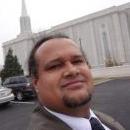

CV75
-
Posts
1785 -
Joined
-
Last visited
-
Days Won
3
Reputation Activity
-
 CV75 got a reaction from Edspringer in What is doctrine?
CV75 got a reaction from Edspringer in What is doctrine?
Here's a good description http://www.mormonnewsroom.org/article/approaching-mormon-doctrine
2 Nephi 32 is a good scriptural definition of it, and Christ describes it Himself in 3 nephi 11.
D&C 68:1-5 backs up 2 Nephi 32.
A sustaining vote is required for ordinations, officers and canon, and these are all sources of doctrine according to the sources I listed.
-
 CV75 got a reaction from Edspringer in The General Assembly
CV75 got a reaction from Edspringer in The General Assembly
I noticed it is used in the D&C to refer to any place of worship, and in a couple of instances specifically those of LDS or other Christian faiths--I had associated the term only with Jewish places of worship. Of course the four Gospels and Acts use it, and Revelation 2:9 and 3:9 use it in an interesting way (allowing that Satan has one -- the church of the devil from the Book of Mormon, and the great and abominable church founded by the devil). So all things indeed have their opposite!
-
 CV75 got a reaction from Edspringer in The General Assembly
CV75 got a reaction from Edspringer in The General Assembly
I meant it to convey “the people in an organization or government who are in positions of authority” per http://www.merriam-webster.com/dictionary/officialdom ...
But here’s an interesting, disparaging use that I find a bit amusing: “...used to refer to those people who have a position of authority, especially in government, usually when they are preventing you from doing what you want to do or are slow or not effective” http://dictionary.cambridge.org/us/dictionary/english/officialdom
-
 CV75 got a reaction from Edspringer in The General Assembly
CV75 got a reaction from Edspringer in The General Assembly
1) Interesting that in the USA, a number of State legislatures use that term for themselves (from Wikipdia):
Arkansas General Assembly
Colorado General Assembly
Connecticut General Assembly
Delaware General Assembly
Georgia General Assembly
Illinois General Assembly
Indiana General Assembly
Iowa General Assembly
Kentucky General Assembly
Maryland General Assembly
Missouri General Assembly
New Jersey General Assembly, lower house of the bicameral New Jersey Legislature
North Carolina General Assembly
Ohio General Assembly
Pennsylvania General Assembly
Rhode Island General Assembly
South Carolina General Assembly
Tennessee General Assembly
Vermont General Assembly
Virginia General Assembly
2) Interesting that in the Book of Mormon, "synagogue" was used to describe a Christian place of worship (a church in that sense) after the Lord fulfilled the law of Moses and established His church among the Nephites: 3 Nephi 18:32, Moroni 7;31
-
 CV75 got a reaction from tesuji in What is doctrine?
CV75 got a reaction from tesuji in What is doctrine?
Here's a good description http://www.mormonnewsroom.org/article/approaching-mormon-doctrine
2 Nephi 32 is a good scriptural definition of it, and Christ describes it Himself in 3 nephi 11.
D&C 68:1-5 backs up 2 Nephi 32.
A sustaining vote is required for ordinations, officers and canon, and these are all sources of doctrine according to the sources I listed.
-
 CV75 reacted to LeSellers in The General Assembly
CV75 reacted to LeSellers in The General Assembly
Aramaic, no.
I don't recall the words in Hebrew ever referring specifically to "a body of like religious believers" except that in Hebrew, the Israelites and later the Jews were all exactly that. So any passage in the Old Testament with "congregation" or "assembly", etc., would work
In the New Testament, the church, as "the officialdom" is clearly just that in Matt 16:13~19, where Peter gets the keys of the Kingdom, etc. Elsewise, "church" means the body of believers.
Lehi
-
 CV75 got a reaction from Edspringer in The General Assembly
CV75 got a reaction from Edspringer in The General Assembly
Do you have examples from the Bible verses where the original Hebrew (and maybe in some few cases Aramaic?) word for “assembly” and the corresponding Greek and English translations convey the same idea, of something akin to “a body or organization of like religious believers” or “the officialdom of said body”?
-
 CV75 got a reaction from Vort in "I think we met in the pre-existence."
CV75 got a reaction from Vort in "I think we met in the pre-existence."
I think it is fairly common, hence the saying... But it is something that everyone that has shared this experience with me (including my wife and me!) has unexpectedly discovered and realized rather than taken as the convention.
-
 CV75 got a reaction from NeedleinA in What is doctrine?
CV75 got a reaction from NeedleinA in What is doctrine?
Here's a good description http://www.mormonnewsroom.org/article/approaching-mormon-doctrine
2 Nephi 32 is a good scriptural definition of it, and Christ describes it Himself in 3 nephi 11.
D&C 68:1-5 backs up 2 Nephi 32.
A sustaining vote is required for ordinations, officers and canon, and these are all sources of doctrine according to the sources I listed.
-
 CV75 got a reaction from Vort in The Immaculate Conception
CV75 got a reaction from Vort in The Immaculate Conception
Not against her will: Luke 1;38, "And Mary said, Behold the handmaid of the Lord; be it unto me according to thy word."
Also take note of the Book of Mormon; 1 Nephi 11: 14-21 (from Nephi’s vision), “And it came to pass that I saw the heavens open; and an angel came down and stood before me; and he said unto me: Nephi, what beholdest thou? And I said unto him: A virgin, most beautiful and fair above all other virgins. And he said unto me: Knowest thou the condescension of God? And I said unto him: I know that he loveth his children; nevertheless, I do not know the meaning of all things. And he said unto me: Behold, the virgin whom thou seest is the mother of the Son of God, after the manner of the flesh. And it came to pass that I beheld that she was carried away in the Spirit; and after she had been carried away in the Spirit for the space of a time the angel spake unto me, saying: Look! And I looked and beheld the virgin again, bearing a child in her arms. And the angel said unto me: Behold the Lamb of God, yea, even the Son of the Eternal Father! Knowest thou the meaning of the tree which thy father saw? And I answered him, saying: Yea, it is the love of God, which sheddeth itself abroad in the hearts of the children of men; wherefore, it is the most desirable above all things. And he spake unto me, saying: Yea, and the most joyous to the soul.”
I think the bolded text is key to understanding such mysteries and the condescension of God. Otherwise, how can the humble and pure in heart take any of this and make it appear tawdry?
-
 CV75 got a reaction from NeedleinA in Drinking from the bitter cup
CV75 got a reaction from NeedleinA in Drinking from the bitter cup
I think it means to humbly submit to whatever horrible/terrible test we are suffering at the time, trusting in God's promises all the while (preserving faith before every other consideration).
-
 CV75 got a reaction from askandanswer in The appearance of a discrepancy in timing
CV75 got a reaction from askandanswer in The appearance of a discrepancy in timing
The “twinkling of an eye” seems to be used in all other scripture references for those who become immortal from a) a translated state when their mission is over; b) a righteous mortal state during and after the Millennium:
- 3 Ne. 28: 8, And ye shall never endure the pains of death; but when I shall come in my glory ye shall be changed in the twinkling of an eye from mortality to immortality; and then shall ye be blessed in the kingdom of my Father.
- D&C 43: 32, And he that liveth in righteousness shall be changed in the twinkling of an eye, and the earth shall pass away so as by fire.
- D&C 63: 51, Wherefore, children shall grow up until they become old; old men shall die; but they shall not sleep in the dust, but they shall be changed in the twinkling of an eye.
- D&C 101: 31, And when he dies he shall not sleep, that is to say in the earth, but shall be changed in the twinkling of an eye, and shall be caught up, and his rest shall be glorious.
While the mystery Paul is referring to could refer to what happens to those in the translated state (whether he is referring to himself and/or others, but not likely himself considering the way he died), if “we” is not in the text, the context seems to then refer to sleeping, changing and resurrecting as are common to all the children of God (especially with the added context of the rest of the chapter). Also, in a sense, the other “twinkling of an eye” scriptures do refer to sleeping, changing and resurrection, just a sleeping that is not prolonged or involve burial in or further decomposition into dust, a change that prevents or skips decomposition, and a resurrection that immediately follows the mortal estate.
-
 CV75 got a reaction from Sunday21 in Drinking from the bitter cup
CV75 got a reaction from Sunday21 in Drinking from the bitter cup
I think it means to humbly submit to whatever horrible/terrible test we are suffering at the time, trusting in God's promises all the while (preserving faith before every other consideration).
-
 CV75 got a reaction from Jane_Doe in Drinking from the bitter cup
CV75 got a reaction from Jane_Doe in Drinking from the bitter cup
I think it means to humbly submit to whatever horrible/terrible test we are suffering at the time, trusting in God's promises all the while (preserving faith before every other consideration).
-
 CV75 got a reaction from Tbone in Drinking from the bitter cup
CV75 got a reaction from Tbone in Drinking from the bitter cup
I think it means to humbly submit to whatever horrible/terrible test we are suffering at the time, trusting in God's promises all the while (preserving faith before every other consideration).
-
 CV75 got a reaction from tesuji in Confusion about Plan of Salvation
CV75 got a reaction from tesuji in Confusion about Plan of Salvation
I think it’s pretty relative. “Eternal punishment is God’s punishment.” (D&C 19:11. Thus eternal life is God’s life (D&C 131:1–4; 3 Nephi 12:48).
D&C 88:38 (and surrounding verses) shows that there are also laws for every kingdom, with bounds and conditions. Some kingdoms have laws where no progress in some areas (such as in the continuation of the seeds) is possible, but perhaps allow some progress in some other areas.
Earth needs 1,000 years to progress as far as Kolob does in one day. So relatively speaking, it is “damned” and does not progress. The same relationship is found in the telestial and celestial kingdoms; the former does not progress relative to the latter.
God is Eternal, and the First and the Last. First and Last are in opposition to Eternal, and the Lord reconciles them through the Atonement. So where the Final Judgement / Last Day is God’s Judgement / God’s Day, it is really, really the last and the final say on the kingdom of glory we inhabit, and the progress for which we are eligible.
-
 CV75 got a reaction from Aish HaTorah in Life and death
CV75 got a reaction from Aish HaTorah in Life and death
Oh, let's go with "olé" LOL... and call it a day (or an epoch)...!
-
 CV75 got a reaction from LeSellers in New Testament Thoughts and LDS Apologetics
CV75 got a reaction from LeSellers in New Testament Thoughts and LDS Apologetics
In general, I take the Book of Mormon text to be more authoritative than the Bible on such subjects as the Restoration, the meaning behind the dreams and visions of its prophets in relation to the Lord's plan for His children, what occurred in the Western Hemisphere in relation to the testament of Christ (just some examples). It is certainly more authoritative as "another testament" than any other book!
-
 CV75 got a reaction from Edspringer in New Testament Thoughts and LDS Apologetics
CV75 got a reaction from Edspringer in New Testament Thoughts and LDS Apologetics
It can be an opening if someone brings it up, but I wouldn't lead with it for a number of practical reasons. I think that is why we begin with explaining what "Restoration" means in general, beginning with the First Vision. I think that is also why we rely more on testimony and inviting the Spirit to bear witness that our message is Christ's message.
The Book of Mormon is probably the best vehicle for someone to receive a spiritual witness of the Restoration, once he reads it. Its existence, from the Title Page, is “…to show unto the remnant of the house of Israel what great things the Lord hath done for their fathers; and that they may know the covenants of the Lord, that they are not cast off forever—And also to the convincing of the Jew and Gentile that Jesus is the Christ, the Eternal God, manifesting himself unto all nations—And now, if there are faults they are the mistakes of men; wherefore, condemn not the things of God, that ye may be found spotless at the judgment-seat of Christ.”
I think that last sentence applies to the Bible and any other scripture as well as the Book of Mormon, so we need to have some patience and charity about what we read and how we treat it, since they are nonetheless counted among "the things of God." Despite its faults, the Bible is still of God, and He will lead us along if we have the right attitude about it and receive of His light and the Spirit as we move forward with faith. The Book of Mormon will additionally open our eyes to the truth and truths of the Restoration.
-
 CV75 got a reaction from Aish HaTorah in Life and death
CV75 got a reaction from Aish HaTorah in Life and death
Well, I mentioned two scriptural / spiritual principles, not scientific definitions. Read on (and catch up): “…something can be alive in once sense and dead in another.”
Bacteria? Single-celled organisms? Viruses? I propose they are both governed and quickened by the light of Christ (which also governs the physical laws we are able to observe) just as we are, but do not necessarily act or originated in a premortal spirit estate as we did.
-
 CV75 got a reaction from tesuji in Life and death
CV75 got a reaction from tesuji in Life and death
Now that's an understatement!
I sometimes think in terms of laws governing the kingdoms. “And unto every kingdom is given a law; and unto every law there are certain bounds also and conditions.” The physical laws of our world explain things quite well in my opinion of what has transpired physically since the Fall, which took place (for lack of a better reference point) beyond the cosmic particle horizon.
I don’t think it is possible right now to understand the physical laws governing the other realms mentioned in scripture, such as the terrestrial creation realm or Eden, or the physical laws in the resurrected state and kingdoms of glory, the pre-mortal realms, he translated Zion in heaven, etc. I consider these to be beyond the cosmic particle horizon, both physically and in other senses.
-
 CV75 reacted to LeSellers in Life and death
CV75 reacted to LeSellers in Life and death
There is some confusion in the word "dead". It implies that the thing was, or could be, alive at one point. A rock, for instance, is not "dead" even though it's not alive.
The construction "non-living" is clearer, but it's clumsy. And there is something wrong with it, too, because I'm not sure, exactly, what "alive" means. If it means that the object has a spirit, then everything in the universe is alive because the whole of creation was created spiritually first, then physically. I have no idea what that means: are there spirit earths and moons, stars and rocks, and water?
The Temple presentation leads me to believe that a spiritual creation may not be an organization of spiritual matter, but the conceptualization of creation. But that is unsatisfactory because we, at least, were created spiritually, and the Lord doesn't make a distinction, in terms of this level of creation, between us and the rest of His work.
Language is both communication and dissembling. We can't really understand that which we cannot describe. But description can't go beyond the words we have. I, at least, don't have the words.
Lehi
-
 CV75 got a reaction from tesuji in Life and death
CV75 got a reaction from tesuji in Life and death
I think two principles inform this conversation: 1) Things that act (alive) and things that are acted upon (dead); 2) Things that are quickened by the light of Christ (alive) and things that are governed by the light of Christ (dead). Because of the interplay between these two principles and agency, something can be alive in once sense and dead in another.
So far, I’m speaking in spiritual terms which have physical application in mortality, but I also think that whether we are using scientific terms, or trying to reconcile the scientific and the spiritual, makes a difference on how we discuss these things.
-
 CV75 got a reaction from Edspringer in 1 Nephi 11:35
CV75 got a reaction from Edspringer in 1 Nephi 11:35
I think every accountable person occupies the great and spacious building a one time or another, on one subject or another (and obviously enticed or tempted to at least); the aim is to repent and get back on the right path.
I think that once Israel became apostate (whether in the centuries leading to Christ's time or in the Great Apostasy), all that was left was the wisdom of the world. That is why the Lord led Lehi out of that situation, in an opportunity to extend the blessings of at least that remnant of a tribe and prepare for the eventual full return of all of Israel to the Lord (see Title Page).
I think the next verse alludes to what happens in the Restoration, when Israel is gathered again under the proper keys, which doesn't happen until after Chapter 12 and well into Chapter 13.
-







.jpg.193995162490768662f2dbe199330e00.thumb.jpg.eece2e524ebb423fe545296766f2dc92.jpg)

